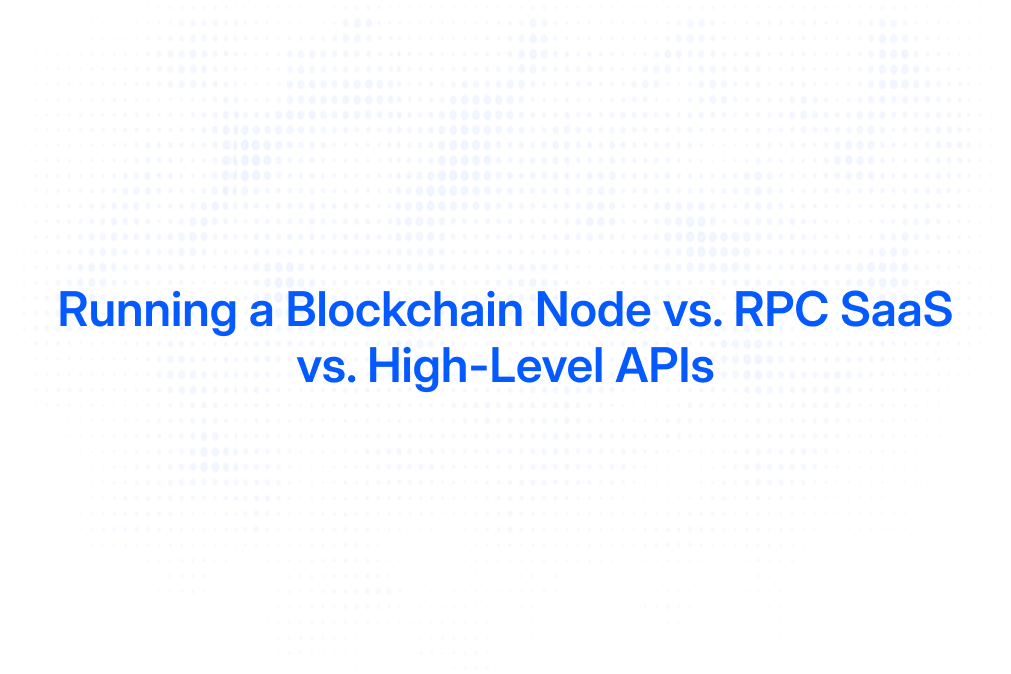MCP Security for Blockchain Infrastructure Explained
As blockchain technology continues to evolve, the underlying infrastructure supporting decentralized applications must keep pace with increasing demands for reliability, scalability, and security. One of the emerging solutions gaining traction in the Web3 ecosystem is the use of Multi-Cloud Proxy (MCP) architectures. This article explores MCP security in the context of blockchain infrastructure, detailing what MCP is, why it matters, and how it enhances security for blockchain projects.
Understanding Google MCP and Its Role in Blockchain Infrastructure
Google Multi-Cloud Proxy (MCP) is a cloud-native proxy solution designed to facilitate secure, scalable, and efficient communication across multiple cloud environments. In the blockchain space, MCP acts as a middleware layer that orchestrates API calls and routes Remote Procedure Call (RPC) requests across various cloud providers and RPC endpoints.
By leveraging MCP, blockchain applications can distribute their RPC traffic intelligently across multiple providers, reducing the risk of downtime and improving latency. This multi-cloud approach is particularly vital for Web3 applications, where high availability and low latency are critical for user experience and transaction finality.
From a security perspective, MCP introduces a centralized control point where policies, authentication, and encryption can be uniformly enforced across all RPC traffic. This centralized governance helps mitigate risks associated with fragmented security controls when using disparate RPC providers.
Why MCP Matters for Blockchain Security
Blockchain infrastructure is inherently distributed, but the RPC endpoints that connect decentralized applications to blockchain networks can become points of vulnerability if not managed properly. Single-provider RPC setups are prone to outages, DDoS attacks, and misconfigurations that can compromise application availability and data integrity.
MCP mitigates these risks by enabling multi-provider RPC routing, where requests are dynamically balanced or failed over between multiple endpoints. This redundancy not only improves uptime but also provides an additional layer of security by isolating potential attacks or failures to a subset of providers, preventing a single point of failure.
Moreover, the implementation of Google MCP allows developers to take advantage of advanced analytics and monitoring capabilities. By centralizing the traffic flow through MCP, developers gain insights into performance metrics and usage patterns across different RPC providers. This data can be invaluable for optimizing resource allocation, identifying bottlenecks, and making informed decisions about which providers to prioritize based on performance and reliability. Additionally, the ability to quickly switch between providers in response to real-time analytics ensures that applications can maintain optimal performance even as network conditions fluctuate.
In the evolving landscape of blockchain technology, where new protocols and standards emerge regularly, MCP's flexibility becomes a significant asset. It supports various blockchain frameworks and can adapt to different RPC implementations, making it easier for developers to integrate new technologies without overhauling their existing infrastructure. This adaptability not only accelerates the development process but also fosters innovation, allowing teams to experiment with cutting-edge solutions while maintaining a robust and secure operational backbone.
Security Benefits of Multi-Cloud RPC Routing
Multi-cloud RPC routing, powered by MCP, offers several security advantages that are crucial for blockchain infrastructure:
1. Enhanced Resilience Against Attacks
By distributing RPC requests across multiple cloud providers and data centers, MCP reduces the attack surface for malicious actors. If one provider experiences a DDoS attack or a security breach, MCP can automatically reroute traffic to healthier endpoints, maintaining service continuity and protecting the application from downtime or data loss.
2. Centralized Policy Enforcement
MCP allows blockchain operators to implement consistent security policies such as authentication, rate limiting, and encryption across all RPC traffic. This centralized approach simplifies compliance with security standards and reduces the risk of misconfigurations that could expose sensitive data or enable unauthorized access.
3. Improved Data Privacy and Compliance
With multi-region and multi-cloud capabilities, MCP enables routing of RPC requests through specific geographic regions or cloud providers that comply with local data protection regulations. This flexibility helps blockchain projects adhere to privacy laws such as GDPR or CCPA, which is increasingly important as decentralized applications gain mainstream adoption.
Addressing Common Security Challenges in Blockchain RPC Infrastructure
Despite the decentralized nature of blockchain networks, the infrastructure layer—especially RPC providers—can be vulnerable to several security challenges. MCP offers solutions to many of these issues:
Single Provider Risks
Relying on a single RPC provider exposes blockchain applications to risks such as provider outages, censorship, or malicious tampering. MCP’s multi-provider routing ensures that no single provider can disrupt the entire application, significantly reducing the risk of service interruptions or data manipulation.
RPC Downtime and Its Costs
RPC downtime can have severe consequences for blockchain projects, including transaction delays, loss of user trust, and financial losses. MCP’s failover mechanisms automatically detect and bypass failing endpoints, minimizing downtime and maintaining seamless user experiences.
Latency and Performance Bottlenecks
Latency is a critical factor for blockchain applications, especially those requiring real-time interactions. MCP supports multi-region RPC routing, directing requests to the nearest or fastest available endpoint. This reduces latency and improves overall application performance while maintaining secure communication channels.
Implementing MCP Security Best Practices for Blockchain Applications
To maximize the security benefits of MCP in blockchain infrastructure, developers and operators should consider the following best practices:
Use Strong Authentication and Authorization
Ensure that all RPC requests passing through MCP are authenticated using secure tokens or API keys. Implement role-based access controls to restrict who can modify routing policies or access sensitive data.
Enable Encryption for All Traffic
Configure MCP to enforce TLS encryption for all RPC traffic. This protects data in transit from interception or tampering by malicious actors.
Monitor and Audit RPC Traffic
Leverage MCP’s centralized logging and monitoring capabilities to detect unusual traffic patterns, potential attacks, or misconfigurations. Regular audits help maintain compliance and quickly respond to security incidents.
Leverage Multi-Region Routing Strategically
Design routing policies that balance performance and compliance requirements. For example, route sensitive transactions through regions with strict data protection laws or prioritize low-latency endpoints for time-critical operations.
The Future of Blockchain Infrastructure Security: MCP and Beyond
The adoption of MCP represents a significant step forward in securing blockchain infrastructure. As decentralized applications scale and diversify, the need for robust, flexible, and secure RPC routing solutions will only grow.
Emerging trends suggest that MCP will increasingly integrate with other advanced infrastructure technologies such as API orchestration, automated failover, and intelligent load balancing. These capabilities will empower Web3 developers to build resilient applications that can withstand evolving security threats while delivering seamless user experiences.
Moreover, the shift towards multi-cloud and multi-provider architectures aligns with the broader industry movement towards decentralization—not just at the blockchain protocol level but also within the supporting infrastructure. This holistic decentralization enhances security, reduces vendor lock-in, and fosters innovation.
Conclusion
Multi-Cloud Proxy (MCP) security is becoming a cornerstone of modern blockchain infrastructure. By enabling multi-provider RPC routing, centralized policy enforcement, and multi-region flexibility, MCP addresses many of the critical security challenges faced by Web3 applications today.
For blockchain developers and operators, adopting MCP-based architectures offers a pathway to improved reliability, enhanced security, and compliance readiness. As the Web3 ecosystem continues to mature, MCP will likely be a foundational technology that supports the next generation of secure, scalable, and decentralized applications.
Embrace the future of blockchain infrastructure security with Uniblock, the Web3 infrastructure orchestration platform that's trusted by over 2,000 developers. Streamline your development process by connecting to blockchain data through our single API endpoint that intelligently auto-routes traffic across multiple providers. With Uniblock, you can ensure maximum uptime, minimize latency, and cut down on costs, all while avoiding vendor lock-in. Join the ranks of developers across 100+ chains who are scaling their projects with confidence. Start building with Uniblock today and experience the ease of managing decentralized infrastructure.
.svg)


.png)



